- Author Jason Gerald gerald@how-what-advice.com.
- Public 2023-12-16 10:50.
- Last modified 2025-01-23 12:04.
This article will walk you through creating a database with Microsoft Access.
Step
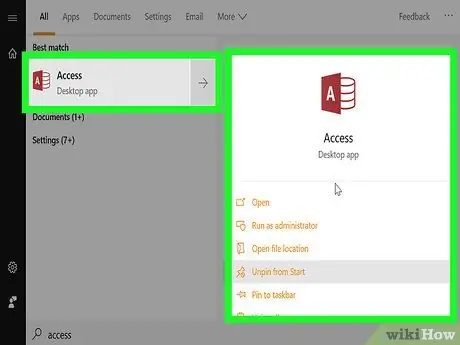
Step 1. Create a blank database
Open Microsoft Access, then choose File > New.
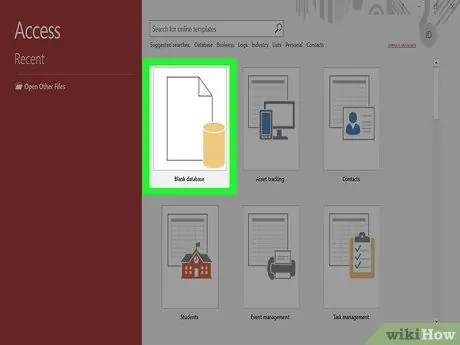
Step 2. Select Blank database because you will be creating a database from scratch
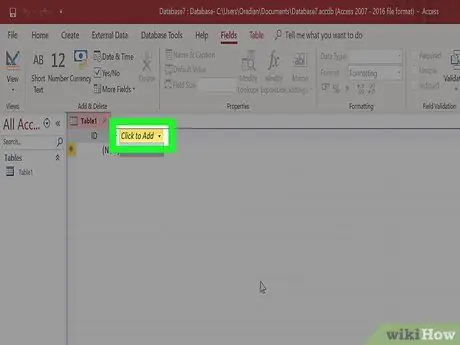
Step 3. Table 1 will appear on the screen. Click Click to Add.
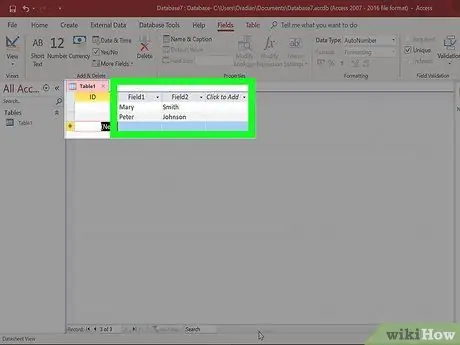
Step 4. Enter the details for the two new fictional employees
Enter "Jeng", press Enter to enter a new field, then type "Kelin". Press Enter twice to enter a new line, then enter "Ucup". Press Enter again, then enter "bin Sanusi".
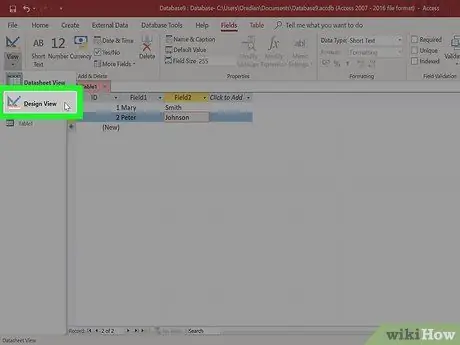
Step 5. Change the table design
Now, you have to change the table design because the table doesn't have a table head. By changing the table design, you can use employee ID numbers. To change the table design, click the View menu on the Home tab of the Ribbon bar, then select Design View.
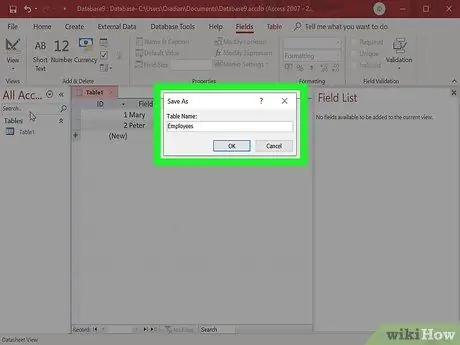
Step 6. When the "Save as" dialog box appears in the tabs at the bottom of the menu bar, write "Employee" as the table name, then click OK
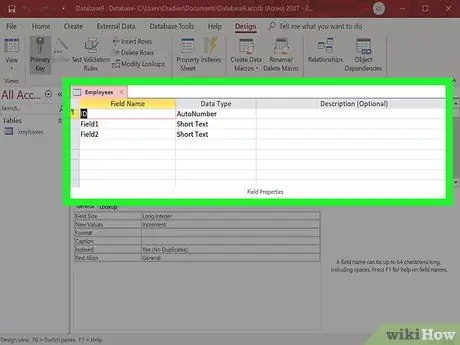
Step 7. After entering the data, adjust the table design by going to Design View view.
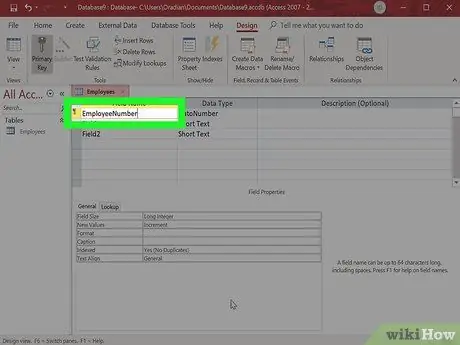
Step 8. In the Design View view, change the column name "ID" to "Employee Number"
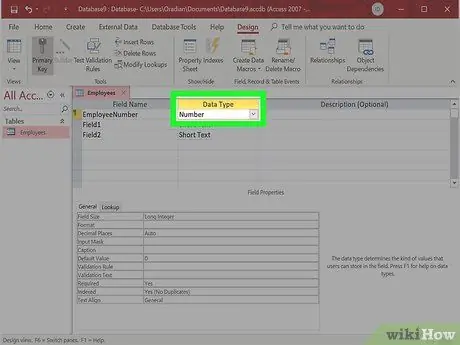
Step 9. Press Tab, then select Number in the Data Type list
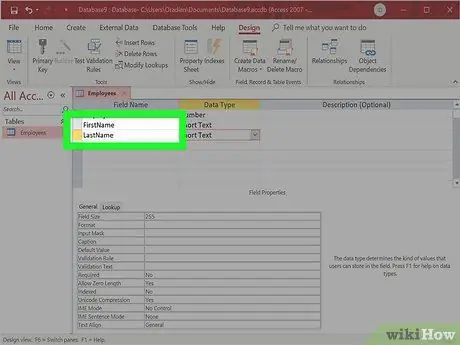
Step 10. Rename the fields Field1 and Field2 to "FirstName" and "LastName"
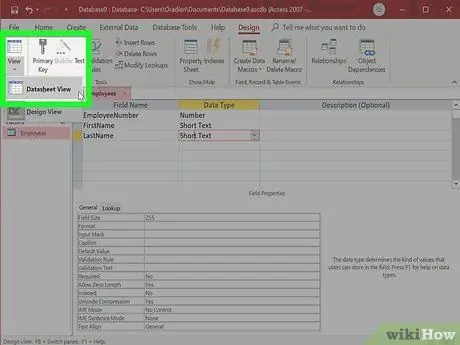
Step 11. Return to the Datasheet View view by clicking View > Datasheet View.
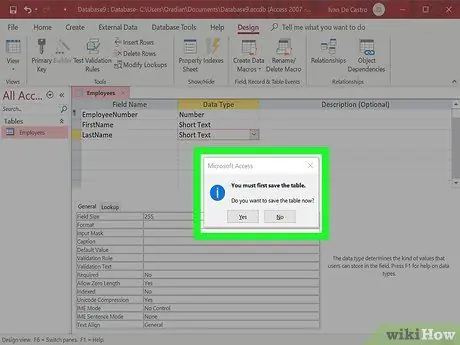
Step 12. When prompted to save the table, click Yes

Step 13. Enter "2011" and "2012" in the first column of the table
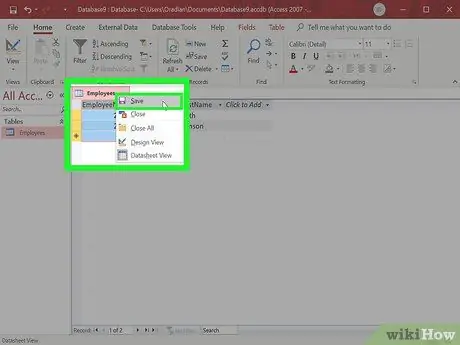
Step 14. Once the table is complete, save it by right-clicking the "Employees" table and selecting Save
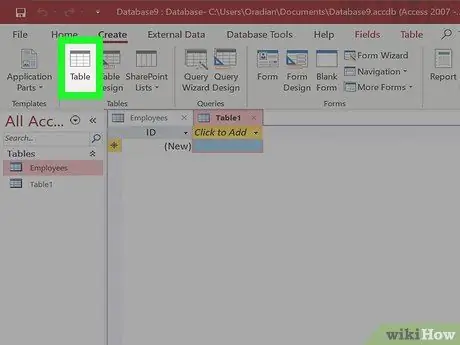
Step 15. Create a new table to store additional information, such as electronic devices used by employees
To create a new table, click the Create tab on the Ribbon toolbar, then click Table.
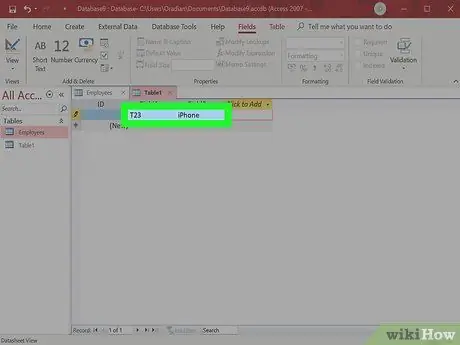
Step 16. Click Click to Add, enter "T23", then press Enter
Enter iPhone, then press Enter twice. ("T23" and "iPhone" are just examples in the article. Use a numbering scheme appropriate to your company's circumstances.)
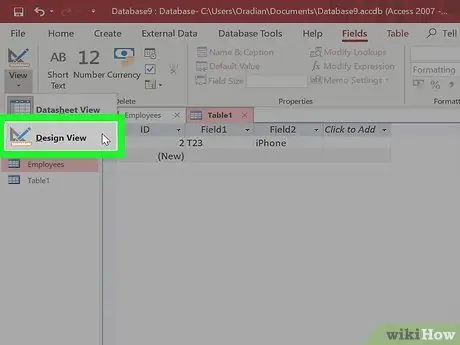
Step 17. Allocate each item to the employee who uses it
Click the View menu on the Home tab of the Ribbon bar, then select Design View.
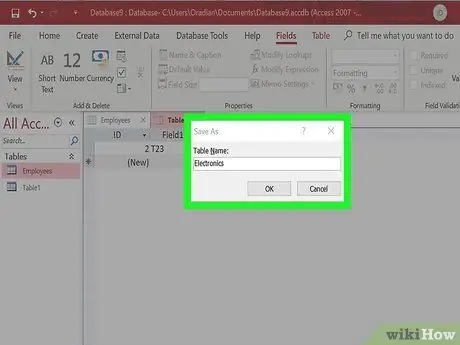
Step 18. Enter the table name "Electronics", then click OK
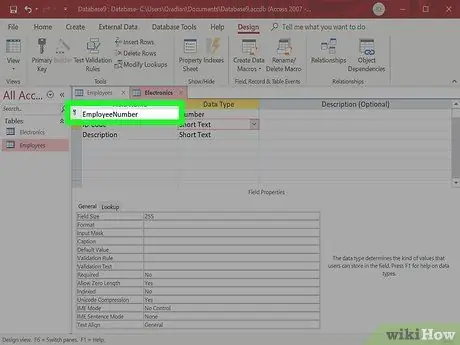
Step 19. In the Design View view, enter "Employee Number" instead of ID
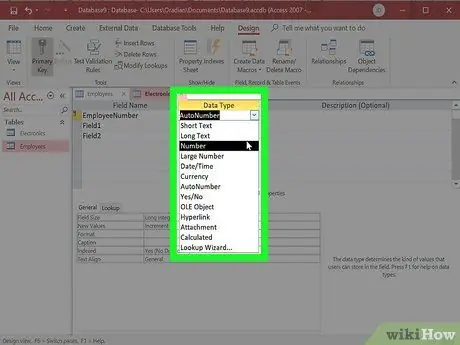
Step 20. Press Tab, then select Number in the Data Type list
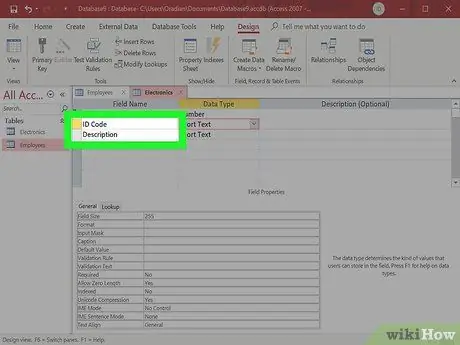
Step 21. Rename the Field1 and Field2 fields to "Device Code" and "Description"
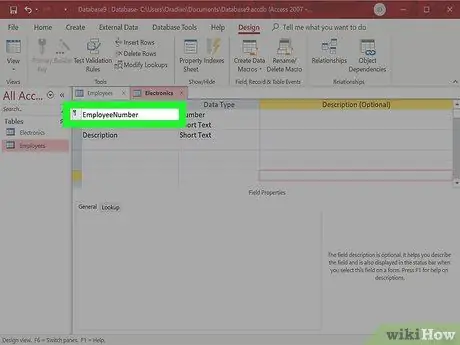
Step 22. Do not rush to enter multiple data
Currently, the column "EmployeeNumber" has a primary key. Thus, you cannot enter duplicate data. You'll need to change the key to be able to enter the employee's ID number multiple times if the employee has multiple devices.
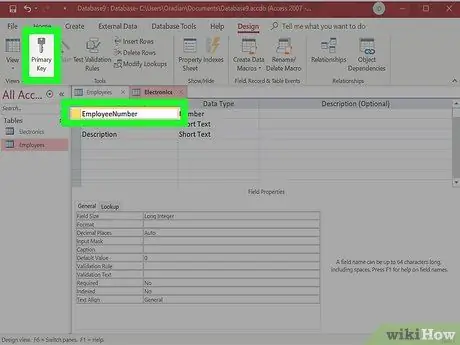
Step 23. Click the "Employee Number" column in the table, then click the Primary Key button on the Ribbon toolbar to clear the table's primary key setting
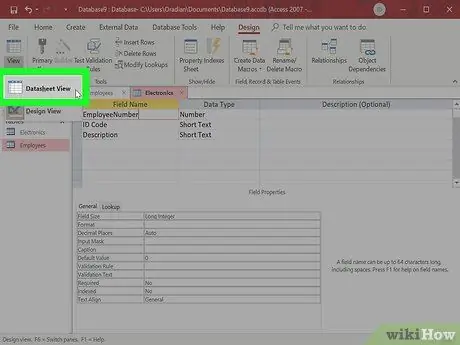
Step 24. Return to the Datasheet View view by clicking View > Datasheet View. When prompted to save the table, click Yes. Enter "2011" as the employee number for the first electronic item on the list, then continue entering data, or follow the image below.
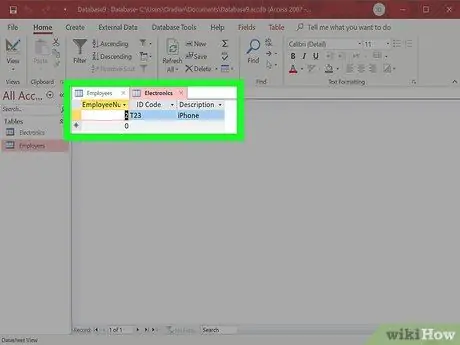
Step 25. Make relationships between tables
After designing the table, you can enter data into the table.
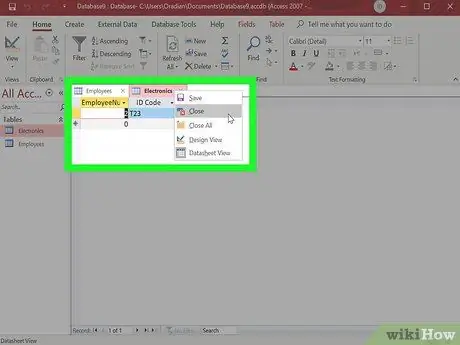
Step 26. First, close each table by right-clicking the tab of each table, and selecting Close
If prompted, click Yes.
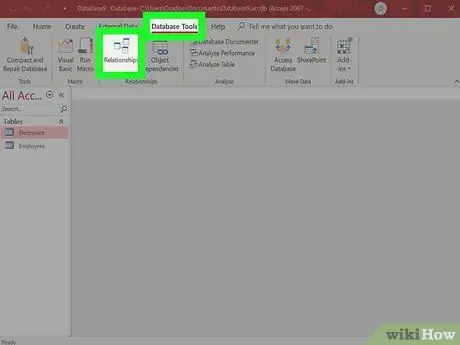
Step 27. Then, select the Database Tools tab on the Ribbon toolbar, then click the Relationships button
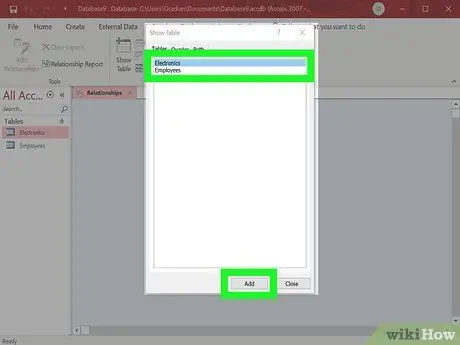
Step 28. When the Show Table dialog box appears, select the name of each table
Click Add, then Close.
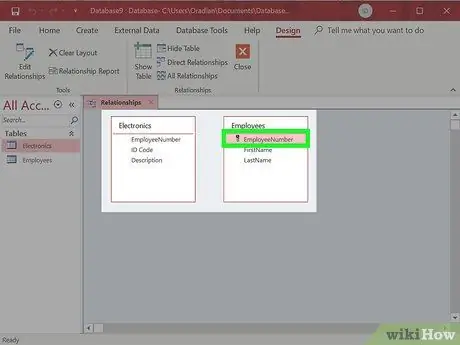
Step 29. Drag the Employee ID column from the Employees table, then drop it above the Employee ID column in the Electronic table
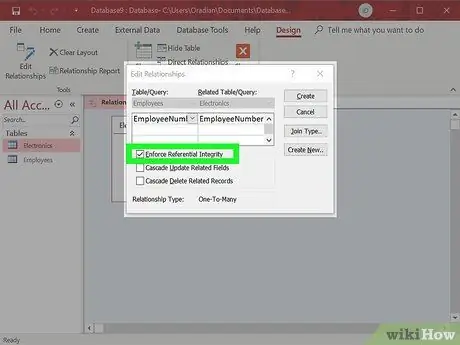
Step 30. When the Edit Relationships dialog box appears, check the Enforce Referential Integrity box, then click Create.
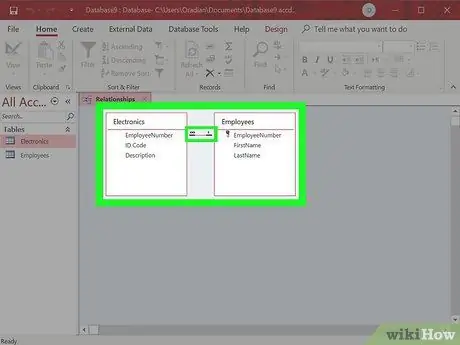
Step 31. Connect the two data tables via the Relationship function
Now, you will see a line between the two tables, with the number "1" in the Employees table and the symbol infinity in the Electronics table. The symbol represents a "one-to-many" relationship: An employee can have multiple devices, but each device can only be allocated to one employee.
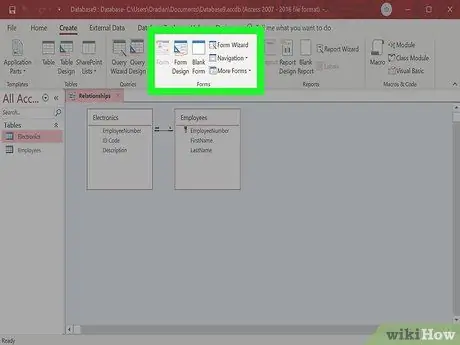
Step 32. Create a form to enter and display data after you connect the tables
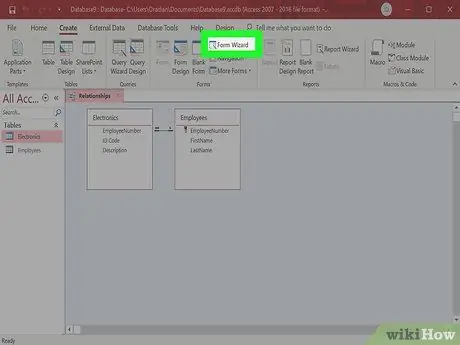
Step 33. In the Ribbon toolbar, click Create > Form Wizard.
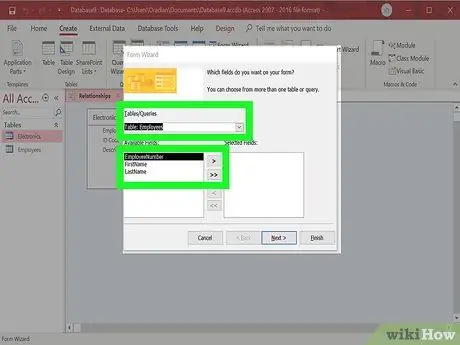
34 When the Form Wizard opens, select Table: Employees from the Tables/Queries menu, and click the double arrow button to add the entire column to the Selected Fields list.
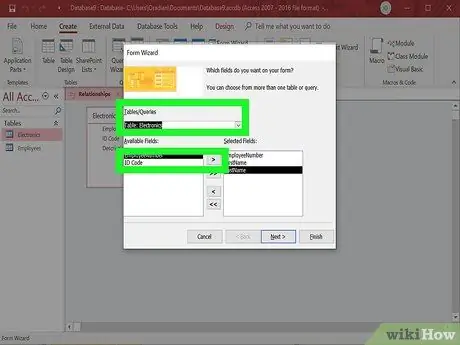
35 Next, in the Tables/Queries menu, click the Table entry: Electronic, click DeviceCode, and then click the single arrow button.
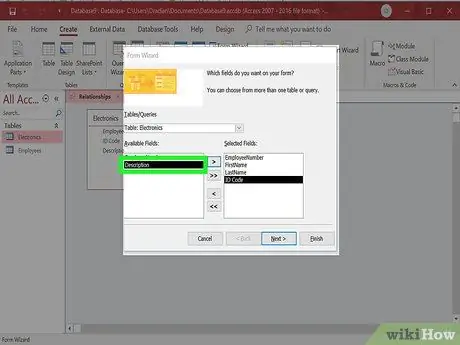
36 Then, click Description, click the single arrow button, and then click Next.
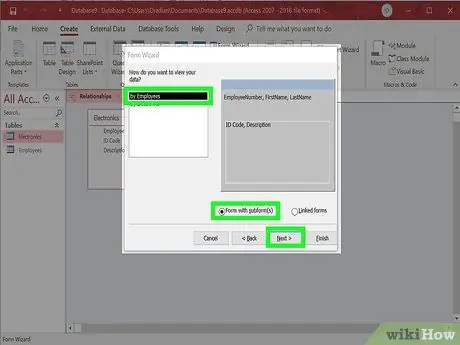
37 When you see the question How do you want to view your data?, click "Employees", select Form with subform(s), then click Next.
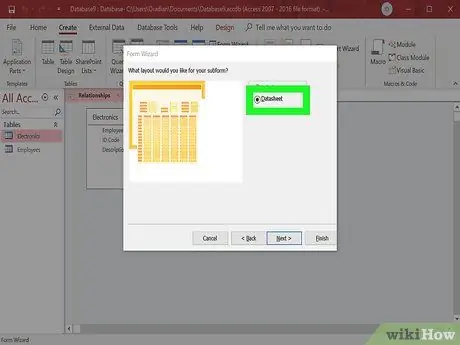
38 Click Datasheet > Next, then click Finish to give the form a default name and open the form to display the information
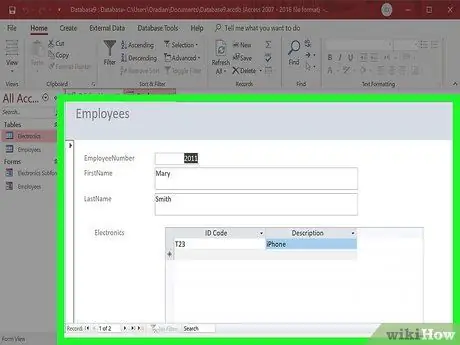
39 Watch the screen
Your form will appear on the screen, with the first information from the Employees table, and the electronic device that the employee is using.
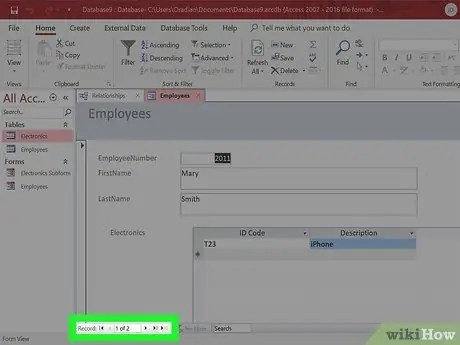
40 You can move between employees by using the navigation buttons at the bottom of the screen
You'll also find a New (blank) Record button that you can use to add employees. When you add a new electronic device, Access will allocate it to all employees automatically.






